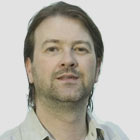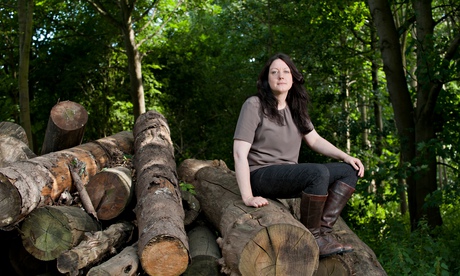What do we get from Malcolm Gladwell, in return for all the adulation, multi-million-dollar advances and $80,000 speaker's fees? Listening to his detractors, you would think the answer is not very much, but that, of course, could be at least partly down to envy. There aren't that many journalists who have achieved millionaire status by doing nothing more than hopping from cafe to cafe with a book bag and laptop in tow.
Gladwell's previous two books, Tipping Point and Blink, sold nearly five million copies. They eloquently argued that social phenomena are spread in the same way as disease, and that our instinct can be more valid than our circumspection. On the back of them he became a global business and trends guru and the notion of a "tipping point" entered the modern lexicon.
His latest book, Outliers, which argues that success isn't primarily down to the individual, but to his or her context, has received mixed reviews. The New York Times called it "glib, poorly reasoned and thoroughly unconvincing". Germaine Greer said archly: "There is no answer to everything, and only a deluded male would spend his life trying to find it, brandishing the 'big idea' as a bookish version of male display". To be fair to Gladwell, he doesn't claim any great import; as he once put it in an interview, "I'm just trying to start a conversation . . . "
But where does his conversation lead? By revealing the otherwise hidden patterns behind outstanding achievements Gladwell certainly adds something to our received wisdom about why people succeed. His critics, though, are on to something. The book, ultimately, disappoints.
What Gladwell does undoubtedly do is present a series of interesting facts. He shows that how "good" you are at sports can depend hugely on which month you were born, as school leagues favour the bigger, ie older, children in each year. The success of corporate lawyers in New York is a tale of immigration, forefathers in the garment trade and anti-semitism. Even the uber success of Bill Gates and the Beatles is down more to chance and time of birth than raw talent, though, of course, Gladwell credits that, too, along with hard work and personality.
In Gates's case, says Gladwell, he happened to be born at the dawn of the PC age, in a place where he had easy access to usually prohibitively expensive mainframe computers. And the Beatles were booked to play hundreds of incredibly long gigs in Hamburg. As John Lennon said later, "We got better and got more confidence, we couldn't help it with all the experience playing all night long".
This idea, that the crucial factor in achieving the extraordinary is to be in circumstances that allow sustained development of innate talent - "a kind of accidental 'hot-housing'" provides the book with its best soundbite. Exceptional success, Gladwell suggests, comes with the 10,000-hour rule, which seems to be the common amount of practice required by all sorts of high achievers before they become real outliers.
Much of Gladwell's work, of course, is not original. He draws on little-known studies and academic sources, and this provides ammunition for his critics. One Nobel prize winner has admonished him for not sufficiently crediting the scientific work he draws upon. But that is churlish, surely. Gladwell does more than regurgitate. He first identifies and then takes hitherto obscure ideas, fills them out into a compelling narrative and adds plenty of anecdote and drama, before finding for them a mass and appreciative audience.
At the book's heart is the revelation that pure intelligence isn't enough. What great successes need is not the highest IQ but a high IQ, accompanied by other factors. What he's saying, in a message that should be seized on by anyone who regards themselves as progressive, is that it is society that provides the conditions for success, rather than the super-talented individual alone.
He tells the sad tale of Charles Langan, identified as a genius at an early age, who, because of a poor background and the inadequate social skills that resulted from it, has ended up drifting and disappointed. Gladwell contrasts him with the equally bright nuclear physicist Robert Oppenheimer, who reached the pinnacle of achievement because his family taught him the social skills necessary to work his way through numerous obstacles.
Like all Gladwell's stories, this is not conclusive, of course. Some poor kids develop amazing social skills, but each case is not meant to be definitive, just illustrative, and they do add up to a patchwork of evidence that convinces: we are not self-made. We are made, partly by ourselves, sure, but crucially, also by the times and society we live in.
The problem with this book, though, is that the end point isn't particularly startling. Unless you are an avowedly right-wing individualist, you probably already buy this core message. As the book unfolds there is a hunger for something deeper and more profound that never turns up.
Unlike Tipping Point and Blink, where Gladwell's weaving of facts and argument led to a seemingly new revelation, Outliers ends up being rather less than the sum of its parts. I guess that inadvertently tells us something else about success. Even outliers like Gladwell can sometimes manage only to be ordinary.
• Derek Draper is a psychotherapist and a Labour campaign adviser. To order Outliers for £15.99 with free UK p&p call Guardian book service on 0870 836 0875 or go to theguardian.com/bookshop










